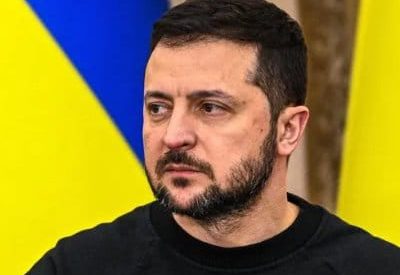US President Joe Biden has formally apologized to Ukrainian President Zelensky for delays in delivering military aid to Ukraine. During a meeting in Paris, Biden pledged an additional $225 million (£191 million) in support to bolster Ukraine’s defense capabilities. This meeting occurred a day after both leaders attended the 80th anniversary of the D-Day landings in Normandy, France.
The newly announced aid package, according to the US Department of Defense, will encompass ammunition and anti-aircraft missiles, critical components to enhance Ukraine’s defensive operations against ongoing Russian aggression. Biden attributed the previous delays in military aid to obstruction from some Republican members of Congress but reaffirmed the unwavering commitment of the United States to Ukraine. “The United States will stand with you,” Biden assured President Zelensky. “You haven’t bowed down. You haven’t yielded at all. You continue to fight in a way that is just remarkable, just remarkable.”
Commitment to Ukraine and Remembering D-Day Sacrifices
In response to Biden’s assurances, President Zelensky emphasized the vital nature of Ukraine’s relationship with the US in countering Russian advances. “We count on your continuing support in staying with us shoulder to shoulder,” President Zelensky stated, underscoring the strategic and symbolic importance of US assistance in Ukraine’s resistance against Russian invasion efforts initiated in February 2022.
Following his discussion with President Zelensky, President Biden delivered a poignant speech at Pointe Du Hoc, a historic D-Day site in Normandy. Addressing the valor and sacrifice of the US Army Rangers who stormed the Nazi stronghold on June 6, 1944, Biden drew parallels between past and present battles for freedom. “Does anyone doubt that they would want America to stand up against Putin’s aggression here in Europe today?” Biden asked, invoking the spirit of those who fought for democracy eight decades ago. He further articulated the duty to “protect freedom in our time, to defend democracy, to stand up to aggression abroad and at home,” reinforcing the moral and historical imperatives guiding current US foreign policy.
President Zelensky Addresses French Parliament Amid Escalating Conflict
Earlier in the day, Ukrainian President Zelensky addressed the French parliament, highlighting the grave implications of the ongoing conflict with Russia. In his speech, Zelensky lamented that Europe was “unfortunately no longer a continent of peace,” underscoring the profound impact of the war on the stability and security of the region. His remarks reflected the urgent need for a resolution to the hostilities that have gripped Ukraine and strained international relations.
President Zelensky expressed hope that a forthcoming summit in Switzerland could pave the way for peace. The summit, scheduled for later this month, represents a crucial diplomatic effort to bring an end to the President Zelensky’s optimism was tempered by the reality of the conflict’s toll on Ukraine and its people, yet he conveyed a message of resilience and the importance of international cooperation in achieving a peaceful resolution.
Macron’s Commitment to Ukrainian Defense
During his visit to France, President Zelensky also met with French President Emmanuel Macron. Macron, speaking on French TV Thursday evening, announced a significant escalation in France’s support for Ukraine. Paris will send Mirage 2000 fighter jets to Ukraine and begin training Ukrainian pilots this summer. Macron stated, “You need normally between five, six months. So by the end of the year there will be pilots. The pilots will be trained in France.”
Macron also revealed that Western allies are considering sending military instructors to Ukraine to train Ukrainian forces on the ground. This move signals a deeper involvement of Western nations in the conflict, aiming to bolster Ukraine’s defense capabilities against Russian aggression. The French president’s commitment marks a notable shift in the level of military support provided to Ukraine.
Kremlin’s Response and International Tensions
Kremlin spokesman Dmitry Peskov responded to Macron’s comments by asserting that France is taking a “direct” role in the Ukraine conflict. This statement reflects the Kremlin’s increasing unease over the growing military support Ukraine is receiving from Western nations. Peskov’s remarks highlight the geopolitical complexities and the escalating tensions between Russia and the West.
These developments come on the heels of a stark warning from Russian President Vladimir Putin. On Thursday, Putin threatened to arm countries with the intent of targeting Western interests, a direct response to the West’s delivery of long-range weapons to Ukraine. Putin’s comments signal a potential broadening of the conflict’s scope and raise the specter of further international escalation.
U.S. Involvement and Strategic Limitations
In the backdrop of these tensions, the United States has taken a cautious but supportive stance. President Joe Biden has given Ukraine permission to use American-supplied weapons to strike targets within Russia, but with significant restrictions. The White House has stipulated that Ukraine can only target areas near the Kharkiv region and explicitly prohibited the use of long-range ATACMS missiles on Russian soil. This careful calibration reflects the U.S.’s effort to support Ukraine while avoiding actions that could lead to a wider conflict with Russia.
The ongoing war in Ukraine continues to draw in significant international involvement, with major powers navigating a complex web of support, restraint, and strategic considerations. As the conflict evolves, the world watches closely, hoping for diplomatic breakthroughs that could bring an end to the violence and restore peace to the region.














